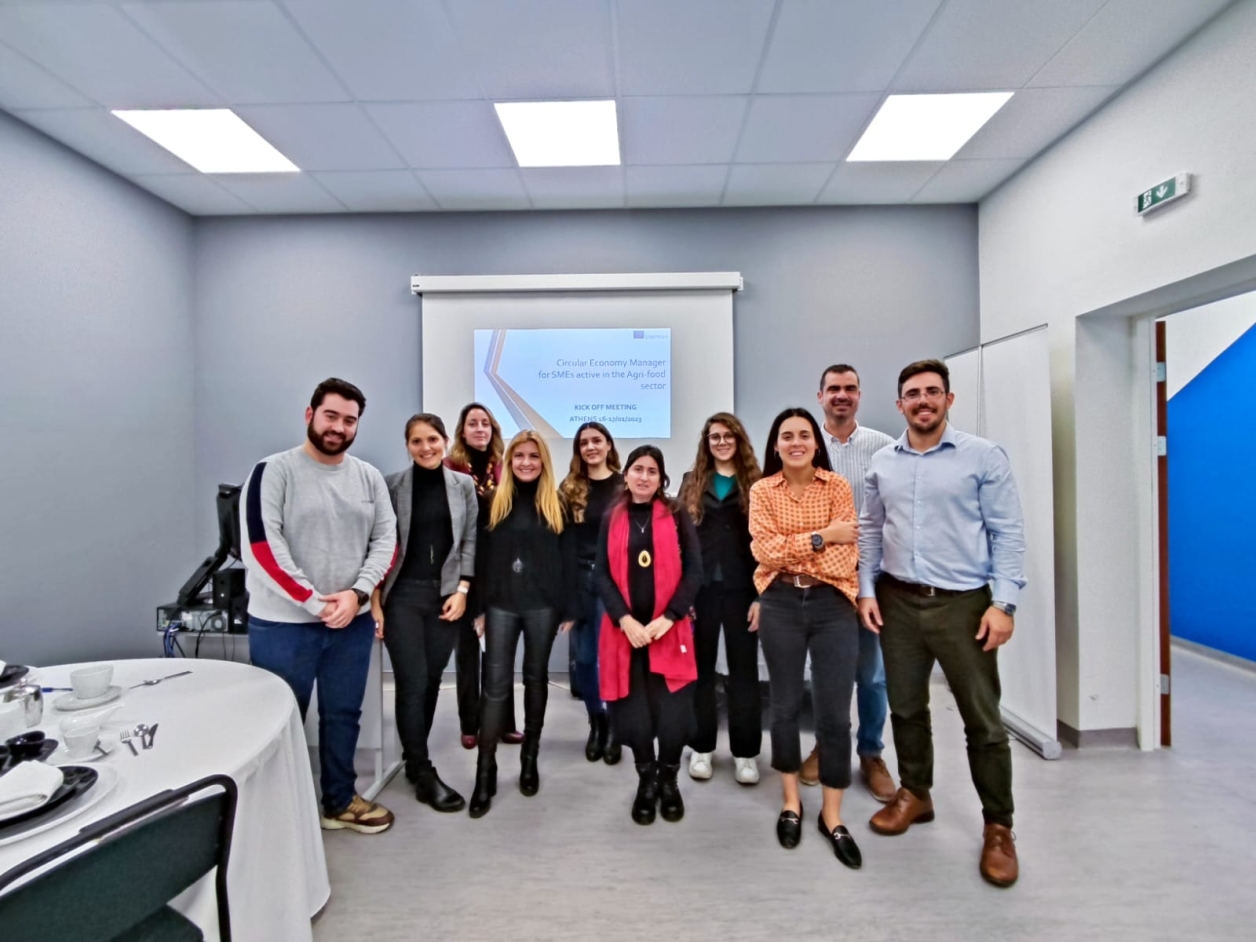The project kick-off meeting of the Circular Economy for SME’s active in agri-food sector (CEMforSMEs) project was held in Athens, Greece, on 16-17 January 2023. The project is co-financed by the European Union, is part of the Erasmus+ programme and is a KA220-VET - Cooperation partnerships in vocational education and training, and the main goal is to promote the circular economy among small and medium-sized enterprises (SMEs) in the food and agriculture sectors.
The circular economy is a production and consumption model that involves reducing waste production by keeping resources in use for longer periods, maximising their efficiency and generating economic, social, and environmental benefits. This model contrasts with the linear economy model, in which products are thrown away after use and in which more natural resources and energy are consumed for product development. The Circular Economy Manager project for SMEs active in the agri-food sector aims to create new job opportunities and improve the skills of current employees through four main sub-objectives:
• Support the professional development of SME managers to facilitate the transition from linear to circular economy;
• Support the skills development of vocational education and training students and the integration of the skills needed for the circular economy;
• Develop the professional profile of the circular economy manager and define his or her role, increasing the quality of job opportunities;
• Develop an innovative curriculum with the use of gamification elements to increase skills and establish the certification process of the circular economy manager.
The project kick-off meeting was attended by several organisations from different countries, including SYAJ -Associacao Juvenil Synergia (Pt), Markeut Skills Sociedad Limitada (Sp), A.B. Institute Of Entrepreneurship Development Ltd (Cy), CANDIDE International (Be), Progressus Research & Counselling (El), TDM 2000 International (It). Each organisation had the opportunity to present its structure, and expertise, so that they could start building a united team capable of contributing optimally to the project, as they are aware that the success of the project will depend on a joint effort.
During the meeting, the various strategies for carrying out each work package were presented, and a dissemination strategy for the project was chosen. There were also opportunities to visit the beautiful historical sites of Athens and to taste some typical Greek food.
In conclusion, the kick-off meeting of the CEM4SMEs project was a success: all partners worked together to discuss the project goals, action plans and expected results. The meeting provided a solid foundation for the project and established clear roles and responsibilities for each partner. It also highlighted the importance of communication, coordination, and regular monitoring to ensure the success of the project. As the project progresses, it will be important that all partners work closely together and maintain open lines of communication to address any problems or challenges that arise. With a clear vision and strong commitment from all partners, the CEM4SMEs project has the potential to have a significant impact on the circular economy and sustainable business practices in the food and agriculture sectors.


